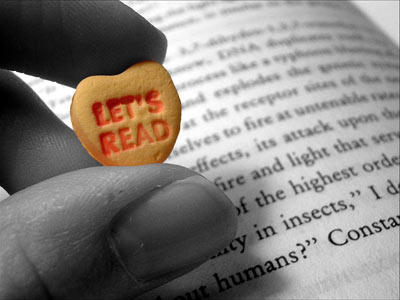All Nonfiction
- Bullying
- Books
- Academic
- Author Interviews
- Celebrity interviews
- College Articles
- College Essays
- Educator of the Year
- Heroes
- Interviews
- Memoir
- Personal Experience
- Sports
- Travel & Culture
All Opinions
- Bullying
- Current Events / Politics
- Discrimination
- Drugs / Alcohol / Smoking
- Entertainment / Celebrities
- Environment
- Love / Relationships
- Movies / Music / TV
- Pop Culture / Trends
- School / College
- Social Issues / Civics
- Spirituality / Religion
- Sports / Hobbies
All Hot Topics
- Bullying
- Community Service
- Environment
- Health
- Letters to the Editor
- Pride & Prejudice
- What Matters
- Back
Summer Guide
- Program Links
- Program Reviews
- Back
College Guide
- College Links
- College Reviews
- College Essays
- College Articles
- Back
Shakespeare’s argument in writing this play
”These violent delights have violent ends, and in their triumph die, like fire and powder…” (II, vi, 9). In this quote, Friar Laurence cautions Romeo that his reckless, rushed, twenty-four hour relationship with Juliet will end rapidly and violently, like the detonation of gunpowder. By the end of the play, it became clear that Romeo had not heeded the Friar, creating disastrous consequences for both houses as well as the royal family in Verona. By writing Romeo and Juliet, Shakespeare argues, that love should not be rushed. Otherwise it will complicate other relations and not allow enough time necessary for thinking things through. In addition, rushing love in the wrong direction leads Juliet to making desperate choices that eventually bring doom upon her.
The first reason why love should not be rushed is that it complicates other relations and does not allow enough time for planning what to do next and how to keep their little secret from their parents. Romeo and Juliet marry each other a mere eighteen hours after they meet, probably because they really want to be with each other and completely disregarded the effect the marriage would have on both of them and their families. If they have stayed “best friends” they would have an ample amount of time to plan out their marriage and how to bring the news to their families. When Paris, the count of Verona, wanted to marry Juliet, her father welcomed him and Juliet panicked because she was already married to Romeo. Juliet would not have acted so rashly when she heard Paris’s proposal from the nurse. She could have worked something out instead of worrying about her present relationship with Romeo. When Romeo married Juliet, he became Tybalts, his enemy’s, brother in law. This made relations between Romeo and Tybalt complicated; Romeo would not fight Tybalt when Tybalt wanted to duel him. “Tybalt, the reason that I have to love thee Doth much excuse the appertaining rage to such a greeting. Therefore farewell. Isee thou knowest me not” (III, i, 60). Romeos friend, Mercutio, fought Tybalt instead and got himself killed. In response, Romeo killed Tybalt and got himself banished as punishment. All of this because of Romeo and Juliet’s rushed wedding.
The last reason why love should not be rushed is because it makes characters act desperately and make fatal mistakes. For example, Juliet, after hearing that she has to marry Paris, refuses and gets manhandled by her angry dad. “Hang thee, young baggage! Disobedient wretch! I tell thee what—get thee to church a’Thursday or never look me in the face. (II, v, 161-164). After this response from her father, she rushed to Friar Laurence’s cell for his consolation and help. The startled Friar then makes up a dangerous plan that requires Juliet to fake her death by drinking a certain type of drug that he prepared and then sending Romeo a letter telling him when to come and rescue Juliet when she awakes. He instructed her to take the drug the night before the wedding, on Wednesday. However, this whole plan becomes marred when Capulet changes his mind and rushes the wedding to Wednesday. This sudden rush makes Juliet then take the drug a day early which means the information in the Friar’s letter is wrong and that Romeo does not get it in time. All of this, because of Capulet’s hastiness over his daughter’s wedding.
In conclusion, Shakespeare argues that love should not be rushed because it screws up the hostile relations between the two families and prevents people from thinking clearly and making the right choices. In marrying so fast, Romeo and Juliet completely forgot the world they were in and made several deadly mistakes as a consequence. Also, rushing love also makes people resort to their most hopeless ideas with the least chance of success. (As seen in Juliet’s case) Though many people say that Shakespeare’s main argument is lack of sleep, it really is the rushing of relations that causes this tragedy.
Cited Page
Shakespeare, Wiliam.”Romeo and Juliet.”Elements of Literature. Ed. Laura Wood. Willard,
-------OH: Holt, Rinehart and Winston, 2005. 787-910. Print.

Similar Articles
JOIN THE DISCUSSION
This article has 0 comments.